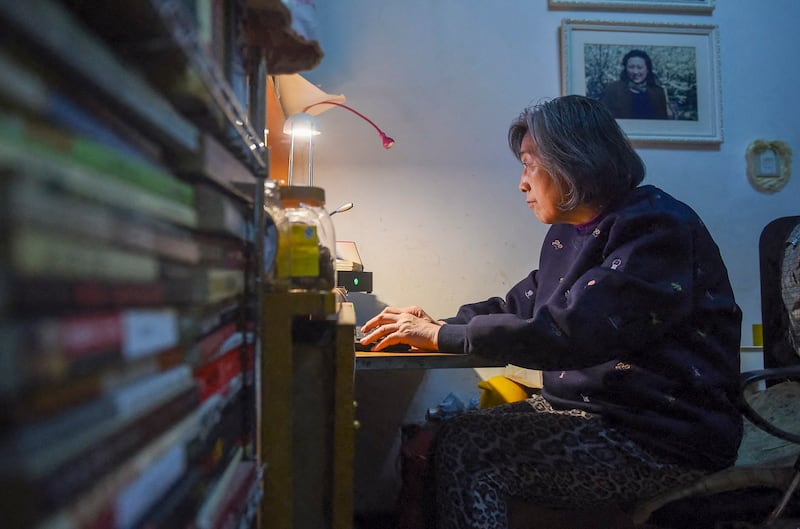Authorities in Beijing have pulled the plug on dissident journalist Gao Yu’s communications, cutting off her access to landline, mobile phone and internet, according to her X account.
“This morning the police cut off my broadband, landline, and mobile phone, cutting off every form of communication,” Gao said via her X account on Monday.
“I’m 80 years old, and I can’t even call 120 [for emergency medical care],” she said, adding: “I’m writing this tweet from a restaurant.”
The move came after she refused a police request to travel out of town on an enforced “vacation” from Aug. 29 ahead of the Forum on China-Africa Cooperation which runs Sept. 4-6 in Beijing, she later told RFA Mandarin.
Calls to Gao’s cell phone and landline continued to result in a “no such number” signal on Tuesday, although her access to the 120 emergency number was restored following a visit from state security police, she said in an update posted to X on Tuesday.
“State security police came today, saying they didn’t know anything about it, claiming they were there to find out what was happening,” she said. “A China Unicom specialist ... said that ‘relevant departments’ had ordered my internet disconnected.”

Gao said her landline was allegedly cut off for “non-payment,” but added that she had a positive balance of 238 yuan (US$33) in her account, saying “they’re lying.”
Repeated calls by RFA Mandarin to the Chaoyang district branch of the Beijing Municipal Public Security Bureau rang unanswered during office hours on Tuesday.
‘Unprecedented level’
Gao told RFA Mandarin in an interview on Tuesday that everything had been normal on Monday morning, and that all of her services were suddenly cut off.
“No matter what we did, turning the router off and on again, it didn’t work,” Gao said. “We called the telecoms company ... but they told us to call the anti-fraud center.”
“I can’t make calls on my mobile phone, or the landline,” she said, blaming the authorities for the move. “Their violation of human rights has reached an unprecedented level.”
Gao also called her local police station, and the Chaoyang district police department, but officials in both places denied any knowledge of the incident.
Gao, who frequently makes comments critical of the ruling Chinese Communist Party, said she had been contacted by state security police at the beginning of August, and told to delete some of her social media content, but hadn’t heard from them since then.
“I always thought they’d come to me if they think there’s an issue with my posts,” she said.
RELATED STORIES
[ Chinese police target dissidents, petitioners ahead of plenumOpens in new window ]
[ Beijing dissidents allowed home early due to security funding cutsOpens in new window ]
[ Chinese dissidents, activists await release from house arrest, forced 'vacation'Opens in new window ]
Police had, however, asked her to leave Beijing under escort from Aug. 29 to Sept. 9, Gao said, adding that she had objected on the grounds that it was too long a trip to take just to avoid “three days of meetings.”
Gao, an outspoken political commentator who is frequently placed under surveillance or ordered to leave town during politically sensitive events or anniversaries, was jailed for seven years in 2015 for "leaking state secrets overseas," after the court found her guilty of leaking ruling Chinese Communist Party policy Document No. 9 to a Hong Kong-based media outlet.
Document No. 9 lists “seven taboos” to be avoided in public debate, including online and in China’s schools and universities, including democracy, freedom of the press, judicial independence and criticism of the party’s historical record.
Her sentence was reduced several months later, and she was released to serve the remainder of her time at home, due to medical issues, on condition that she avoid contact with the foreign media.
She was denied permission to leave China to seek medical treatment in Germany in 2016.
Translated by Luisetta Mudie.
